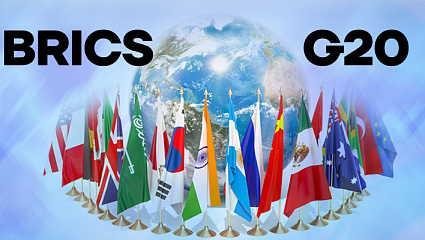First steps in business with China. Six nuances of business correspondence
Based on my 20 years' experience of working in China, I would like to point out some of the nuances of business correspondence with Chinese companies.
Firstly, business letters are now sent by email, which encourages a degree of simplicity in their drafting. This is acceptable when the partners are acquainted to with each other. However, if your first email is signed: "manager Victor", you will have to wait forever for a reply.
The initial letter should preferably be written on your company letterhead, with the logo, contact details, title and signature of the manager, and sent as an attachment to the covering email. In China, letters with stamps and presentable signatures are treated with respect.
If you send a letter on an official letterhead, you can expect the Chinese addressee to pay more attention to your letter.
Secondly, unlike business correspondence in English, Chinese letters never use the term "dear" (Dear/亲爱的) when addressing the addressee by name, but a dry "respected"(尊敬的).
Thirdly, in business letters the Chinese are not keen on fancy language, so it is better to write in plain and simple and understandable language. The key thing in the text is to convey the essence of your message.
If you have questions for your partner, you should keep them as short as possible and be sure to number them in order to get an answer for each one. Otherwise, not all your questions will be answered.
Fourthly, about 15% of emails sent in China do not reach the final recipients the first time, so I suggest including in your emails the final phrase “Please confirm receipt of this message” (烦请确认收到此邮件). If you do not receive confirmation within 10 working days, the letter must be sent again.
Fifthly , about the design of attachments to letters. In the course of correspondence, questions often arise about documents sent as attachments to the main letters (catalogues, projects, summaries).
In case of clarification of ambiguities, it is advisable to indicate in the accompanying e-mail the exact title of the document in the attachment, the number of pages in it, and in what language it was prepared.
With a detailed description of the attachment in the cover letter, you will not receive a comment from the recipient like “Was there an attachment?”. Keep your email correspondence in a separate archive, trust me, 'staff culture' is a great thing when communicating with a partner!
Sixthly, about the Chinese protocol and letters of gratitude. Historically, China has long attached great importance to observing protocol during events, so the protocol services(礼兵司) of many Chinese entities have as much, if not more, credibility with management than the operational units with which you negotiate directly.
I have witnessed a number of cases where the protocol services of Chinese organisations due to non-compliance with deadlines or application procedures have rigidly cancelled important meetings or speeches by Russian and even Chinese VIPs, which has ruined many serious cooperation projects.
In many Chinese structures, protocol services are responsible for 'external' correspondence. This means that your letter will first get into the “protocol”, and it depends on it whether it will be transferred to the commercial department of the company. Therefore, if progress has been made in your paperwork with the Chinese party, or if you have participated in an important event with a Chinese company, remember to send a thank you letter to the Chinese party "for a clear organisation and fruitful results" at the end. This is an important element in establishing relations with a Chinese company. Such a letter or a copy of it will certainly reach the Chinese company's protocol service, and will probably later serve you well in organising further "protocol" events with your Chinese partner.
Author of the channel “Business with China. Experience of 20 years .”







 DIGITAL WORLD
DIGITAL WORLD






































